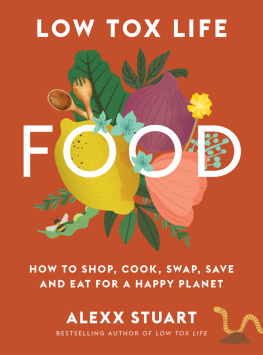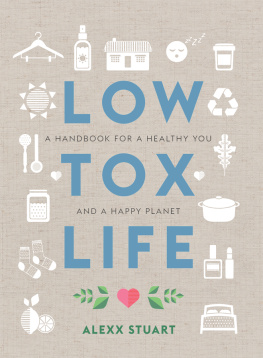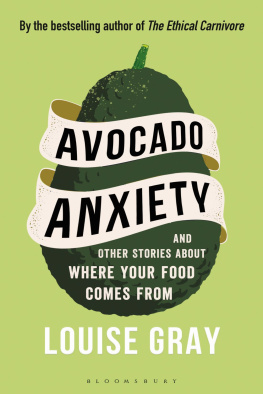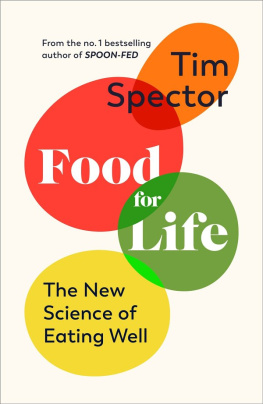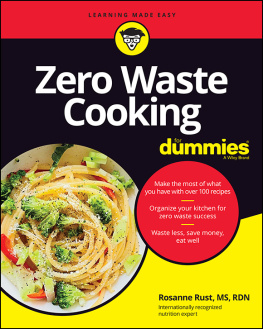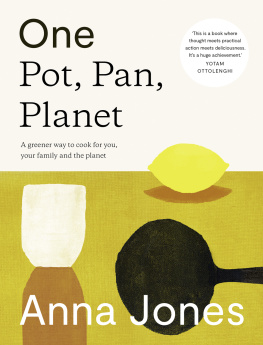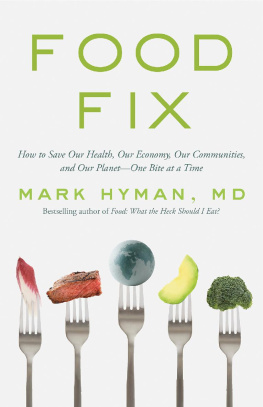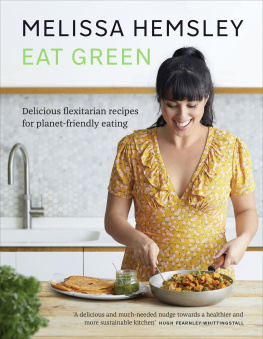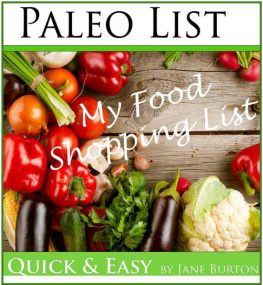WHAT ARE THE BEST FOODS TO PUT IN YOUR SHOPPING BASKET FOR YOUR HEALTH AND FOR THE PLANET? IS IT NECESSARY TO CUT OUT MEAT, ALMONDS AND GO ORGANIC? WHO CAN AFFORD IT ANYWAY?
Bestselling author of Low Tox Life and ultimate gentle activist Alexx Stuart clears a path through the rules so stridently laid down by proponents of particular diets. She turns the tables on a supermarket system that is geared strongly against our health and the environment, and points to the how rather than the what. Because questioning how your food is grown is the key to unlocking dependence on a broken food system and to finding easy and delicious answers to that daily conundrum: whats for dinner?
Low Tox Life Food is packed with inspiration and stories from regenerative farmers, checklists for what to ask about the produce you buy, ways to afford better choices, as well as 80 of Alexxs most requested recipes for budget-friendly, easily adaptable meals without waste.
If you want to feel more certain and more hopeful about the future of food and our planet, this book is for you.
To literally everyone. May we be or meet the people who grow our food in a regenerative way as we learn more about the critical importance of true partnership with nature to our very existence. See you at the table, on the farm, in the community garden, by the compost bin, at the markets or in your vegie patch as we send ripples of change out into the world.
Introduction
Want to know a little secret? When I set out to write this book, I originally thought it was going to be about the highest carbon-emitting foods around the world, thus helping us discover a low-carbon diet. Id spearhead a mission to find the worst-offending foods, celebrate the foods with a halo around them, write some lovely recipes so we could feel proactive in doing something good for the planet, and hooray goals kicked and progress made. A catchy title and a blueprint (we humans love a good list or protocol, dont we?): Im busy, just tell me what to do! All you need is to add a celeb, an accompanying workout plan and an interview with Oprah and: success! Or so I thought but my investigations revealed the need for a different story.
I was gentle on myself and my earnest but flawed endeavour. As I began, I was soon reminded just as my humanities degree had taught me 25 years earlier, every time I sat down to prove a point in several thousand words at the end of a semester that this much is true: very little is black and white. There would be no reductionist ranking of all the foods, no evil and sin-free allowing us to arrive at a point where we could get 10 points and a gold star for having the perfect low-carbon diet. That safety we crave in seductive absolutes wasnt there, but something much more deeply rewarding and satisfying was.
While it was quite easy to rate and rank foods from conventional agriculture, it didnt show the whole picture kind of like a study concluding that red meat increases colon cancer risk without distinguishing the healthy whole food eaters, who eat pasture-fed beef with a wide variety of colourful vegies and lead active lifestyles, from eaters of hot dogs and fast food burgers who drink two colas a night or processed beef sausages packed with preservatives and colours while they sit still for hours at a time, day after day. There was a ton of information about the evils of beef, which was considered the root of the planets problems, emitting huge amounts of carbon and methane, but then there were stories of farmers using animal grazing techniques to reverse desertification, restore grassland health and recover soil health, restore healthy water systems and cool the lands temperature. Id find one piece of research that said almonds were terrible for the planet and we all had to feel guilty for eating them or drinking almond milk, but Id then read about almonds produced using regenerative organic agriculture in areas with healthier natural rainfall and pollination, teeming with biodiversity.
In one report, avocados were not only creating horrible human rights abuses in Mexico and Guatemala, but also destroying the planet through deforestation, all so that they could be flown around the world in order for posh people to eat expensive smashed avocado on toast in a cafe in Europe. But if grown locally as a part of an agroforestry operation, avocados were a hardy tree that required little pest control and offered good cover protection to other plants, making them a great source of nutrient-dense food when eaten close to the source.
All this time wed been fighting about what the food was and how bad it was for the planet, but it becomes clearer by the day that in order to have a productive and holistic conversation about the effect of produce on emissions, we need to take into account how its farmed and where . We cant continue to let a trend in food or trend in agricultural methods heck, a trend in beliefs even lead to deforestation to feed the world or create localised hunger. It seemed so horribly broken, a system that would rob people of their native foods, driving up local prices to export that food to satisfy a hot new trend on the other side of the world. There is so much more to consider in prioritising produce for our shopping baskets; and why something that might be good here might not be so great there, is just the tip of the iceberg.
So that neat little idea I originally had for ranking foods was getting messier by the minute and was about to get messier still, when I found two other major players we really need to consider here. Firstly, its not just about what we should eat the pear or the cashew or the chicken but what we should do to stop wasting so much darn food. A vast quantity of food we produce or buy is subsequently wasted, either at the farm gate, rejected or without a customer; in the supply chain; or rotting away in our home fridges or landfill. This could all be nourishment for us, or for the hungriest global citizens, or for the soil through regenerative composting programs. Instead, its a huge emissions burden. In fact, if food waste were a country it would be the worlds third largest carbon emitter, behind the United States and China. I do believe thats what we call an elephant in the room.

